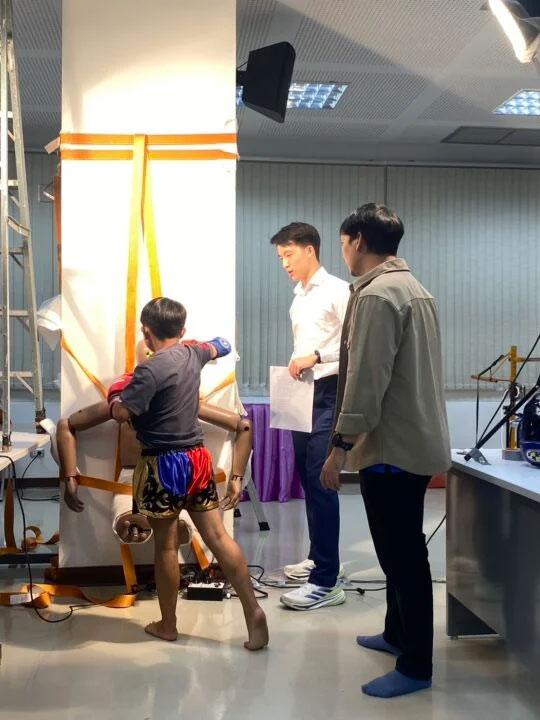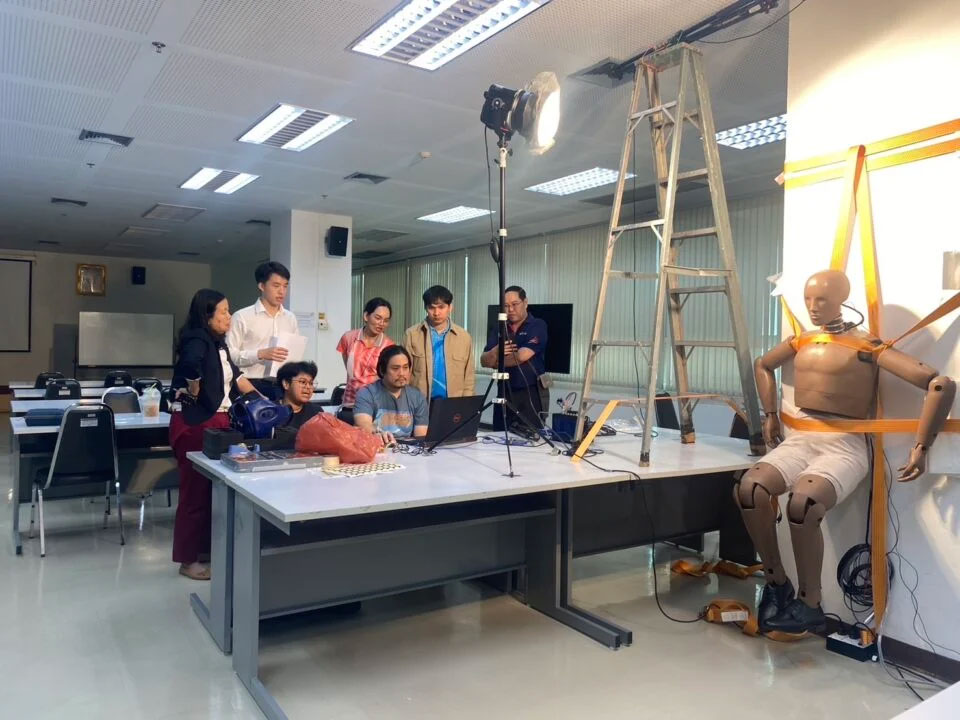The Sirindhorn International Thai-German Graduate School of Engineering (TGGS) at KMUTNB conducted testing for the research project “Muay Thai Head Guard Protection for Youth,” initiated by the Playing Forward Foundation, to assist young athletes injured during sports activities.
|
| Associate Professor Dr. Chulalak Khamai, Mr. Manus Dangchat, and Mr. Natthawut Prasatthong, along with the team from the Department of Mechanical and Automotive Engineering (MAE) at TGGS, King Mongkut’s University of Technology North Bangkok (KMUTNB), provided academic support and testing equipment for the Muay Thai Head Guard Protection for Youth research project. The project was supported by the Playing Forward Foundation, founded by Mr. Phoomkarn Teadulyasathit, who stated, “As the founder and president of the Playing Forward Foundation, which aims to restore the dreams of young athletes who have suffered serious injuries and help them return to sports, I have had experience in assisting injured young athletes and have come to understand the deep-seated issues faced by young Muay Thai athletes. The brains of these young athletes are at risk of damage, which can have long-term impacts on their future. |
 |
 |
Currently, Muay Thai is one of Thailand’s soft powers and is popular among people of all ages around the world, including children interested in learning the sport. This inspired me to reduce the impact on the brains of Thai and global children practicing this sport by using this research project to develop a more effective head guard in the future. My goal is to develop and enhance protective equipment to prevent injuries, particularly focusing on the brain’s rotation caused by Muay Thai competitions. Currently, there is no equipment that addresses this issue. This research has been successful thanks to the support of KMUTNB and TGGS, which provided an excellent team and state-of-the-art equipment to support this research,” said Mr. Phoomkarn Teadulyasathit. |
| Associate Professor Dr. Chulalak Khamai revealed, “This research project originated from data showing that around 200,000 – 300,000 children aged 4 and up participate in Muay Thai competitions. These children are at risk of long-term brain injuries. Mr. Phoomkarn recognized that there should be equipment to reduce the risk of brain injuries in young Muay Thai athletes and thus initiated this project. He sought support from KMUTNB to provide academic personnel and specialized equipment for the research. Today, tests were conducted to collect data on punch speed and head acceleration using a Hybrid III test dummy, which was struck in various ways by young Muay Thai boxers. The data will be analyzed to develop and improve Head Guard protection equipment for young boxers, and further testing will be conducted to assess the effectiveness of this equipment in preventing head injuries. This collaboration marks an important step in improving safety standards for youth in Muay Thai,” concluded Associate Professor Dr. Chulalak Khamai. The testing was conducted recently at the Sirindhorn International Thai-German Graduate School of Engineering (TGGS). |
 |
 |
|
|





